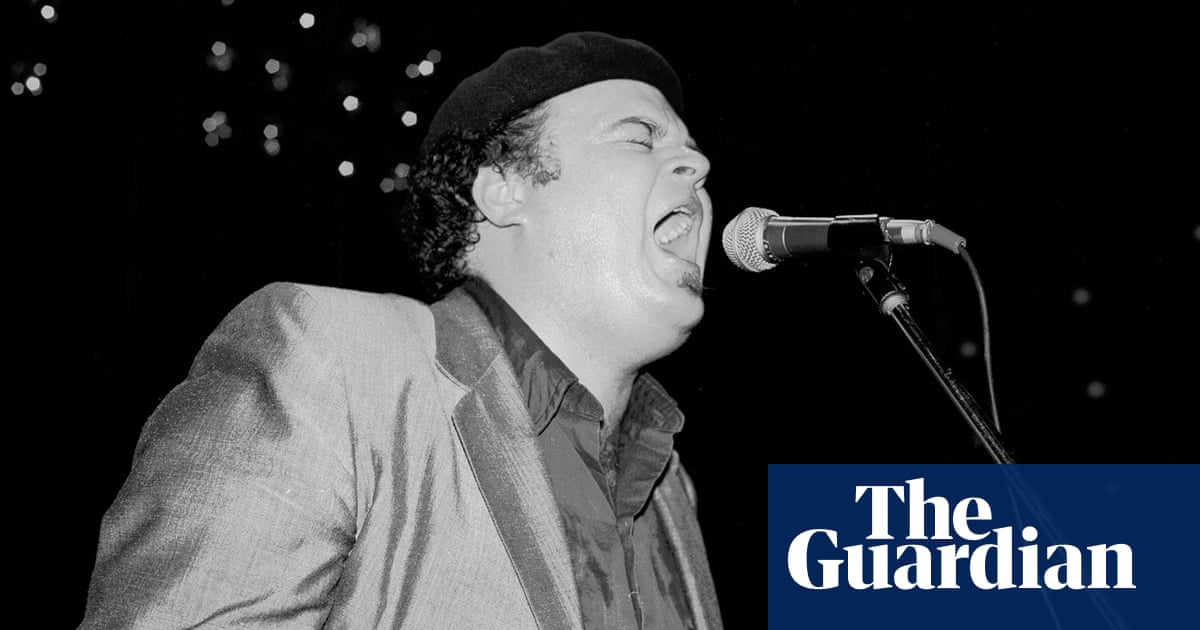David Thomas, who fronted the wild and free-thinking American rock bandPere Ubu, has died aged 71.
A statement on Pere Ubu’s Facebook page said that he died “in his home town of Brighton & Hove, with his wife and youngest step-daughter by his side. MC5 were playing on the radio. He will ultimately be returned to his home, the farm in Pennsylvania, where he insisted he was to be ‘thrown in the barn’ … We’ll leave you with his own words, which sums up who he was better than we can: ‘My name is David Fucking Thomas… and I’m the lead singer of the best fucking rock and roll band in the world.’”
That band were indeed a force to be reckoned with, channelling the raucous, raw energy of garage rock into adventurous songwriting decked out with saxophones, funky bass and Thomas’s spirited exclamations. With a post-punk spirit even before punk had properly got going, Pere Ubu were a big influence on the alt-rock that emerged in the 1980s including bands such as Pixies.
Born in Miami and raised in Cleveland, Ohio, Thomas formed his first band Rocket From the Tombs in 1974, who, despite some notoriously energised live shows couldn’t find a record deal and never put out studio material. Thomas later said he was dismayed by the band’s desire to play cover versions, and “knew that Rocket From the Tombs was dead”.
Thomas then formed Pere Ubu, taking their name from a character in a play by absurdist French writer Alfred Jarry. “It was a name that wouldn’t mean anything to 95% of an audience,” he later said. “I wanted to create a band that Herman Melville, William Faulkner or Raymond Chandler would have wanted to be in.”
Debut single 30 Seconds Over Tokyo was released in 1975, and the band impressed an A&R at Mercury Records, which created a whole new imprint for their 1978 debut album The Modern Dance. Described as “harsh and wilfully ugly” in Rolling Stone, it contained superb vocal performances from Thomas, such as the exhilarating rant of Life Stinks, and while it wasn’t a commercial success it chimed with a growing post-punk movement.
The band broke up briefly in 1979, then for a longer period after fifth album Song of the Bailing Man. Thomas put out a series of records away from the group, with backing bands such as the Pedestrians and the Wooden Birds, before Pere Ubu reformed in 1987. This was the beginning of the band’s most commercially successful phase, with a major label behind them, prompting minor MTV hits such as Waiting For Mary, and appearances on British TV.
They released 14 albums in the following years, with Thomas the sole founder member leading a changing lineup of more than 20 musicians. “If I called up 20 of the 21 tomorrow they’d come back. They love to work with me,” Thomastold the Guardianin 2022.
Thomas also had intriguing side projects, such as an appearance in Rogue’s Gallery, a star-studded concert series performing pirate songs (he also performed What Will We Do With a Drunken Sailor on a 2006 album that also featured Sting, Lou Reed and Nick Cave) and a 2002 West End production of “junk opera” Shockheaded Peter. A five-starGuardian reviewhailed his “gravitas” and said: “Thomas adds immeasurably to the freakshow appeal.”
He later lived with kidney disease. The Facebook post announcing his death stated Thomas had been recording an album that “he knew was to be his last”. The album will be completed after his death, along with an autobiography and an archival project of live concerts.
